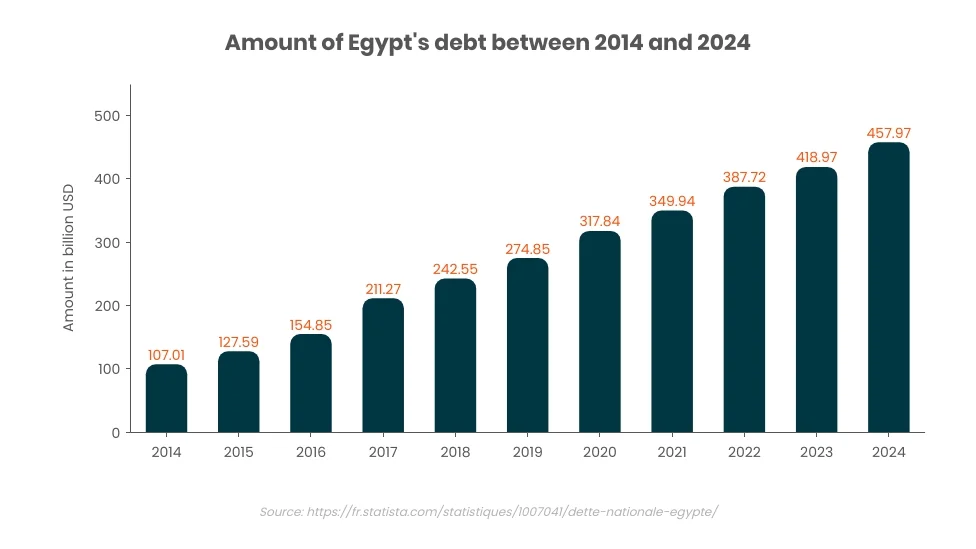Egypt and the European Union have inked a landmark three-year strategic partnership valued at 7.4 billion EUR. This collaboration aims to spearhead economic reforms in Egypt while addressing regional migration concerns.
EU-Egypt strategic partnership
EU leaders have concluded an agreement valued at 7.4 billion EUR to bolster Egypt’s economy, aiming to foster regional stability and avert a potential European migration crisis. The triennial EU-Egypt strategic partnership comprises:
- 5 billion EUR in concessional loans for economic reforms
- 1.8 billion EUR to stimulate private sector investments
- 600 million EUR in grants, including 200 million EUR designated for migration management.
Following months of intensive and fruitful diplomatic negotiations between the EU and Egypt, six EU leaders visited Cairo on Sunday, March 17, 2024, to finalize this financial pact.
Egypt’s strategic position
Ursula von der Leyen, President of the European Commission leading the delegation, emphasizes Egypt’s « strategic position » within the Maghreb region.
Ursula and Meloni, alongside Egyptian President Abdel Fattah al-Sisi and the Prime Ministers of Greece, Austria, Cyprus, and Belgium, convened for the discussion.
« The presence today of six European leaders underscores our unwavering commitment to our alliance. Our shared strategic interests bind us in pursuit of stability and prosperity. Given Egypt’s political and economic influence and its strategic significance in an exceedingly volatile region, the importance of our partnership is poised to increase over time, » von der Leyen conveys to Sissi.
Preventing a Mediterranean migration crisis
The triennial agreement epitomizes the bloc’s steadfast commitment to preventing refugees from crossing the Mediterranean. It addresses a broader range of issues than the controversial 150 million EUR agreement concluded the previous year with Tunisia.
The most effective method for Northern countries to dissuade individuals from the South from migrating to Europe is not merely dismantling human trafficking networks but also « reasserting rights » in Africa and aiding in the development of their economies.
Factor in the migration crisis
European governments have long expressed concerns about the potential for instability in Egypt, a country with 106 million inhabitants grappling with difficulties raising foreign currencies. Consequently, Egypt has opted for privatization, selling 1.9 billion USD in assets.
Economic hardships and poverty have driven many citizens to emigrate in recent years. Greece and Italy have particular apprehensions about the prospect of a new refugee crisis stemming from both Gaza and Egypt, which currently welcome about 9 million people. The UN International Organization for Migration has indicated that this figure includes 4 million Sudanese and 1.5 million Syrians.
Review of Human Rights Watch
Human Rights Watch criticized the agreement, stating it would « reward the Egyptian autocratic leader ». The organization underscores that since Sissi came to power following a coup in 2013 and her subsequent election to the presidency in 2014, her administration has maintained tight control over Egypt. That includes the suppression of dissent, the imprisonment of critics, restrictions on media freedoms, and limitations on civil society activities.
Following thorough examination by MEPs, the EU intends to collaborate with neighboring countries to enhance democracy and uphold human rights through partnerships rather than sever ties.
The four-page joint declaration includes commitments to human rights, ensuring that both parties « will persist in fulfilling their obligations to further promote democracy, fundamental freedoms, and human rights, gender equality, and equal opportunities, as set out in the partnership priorities. »







